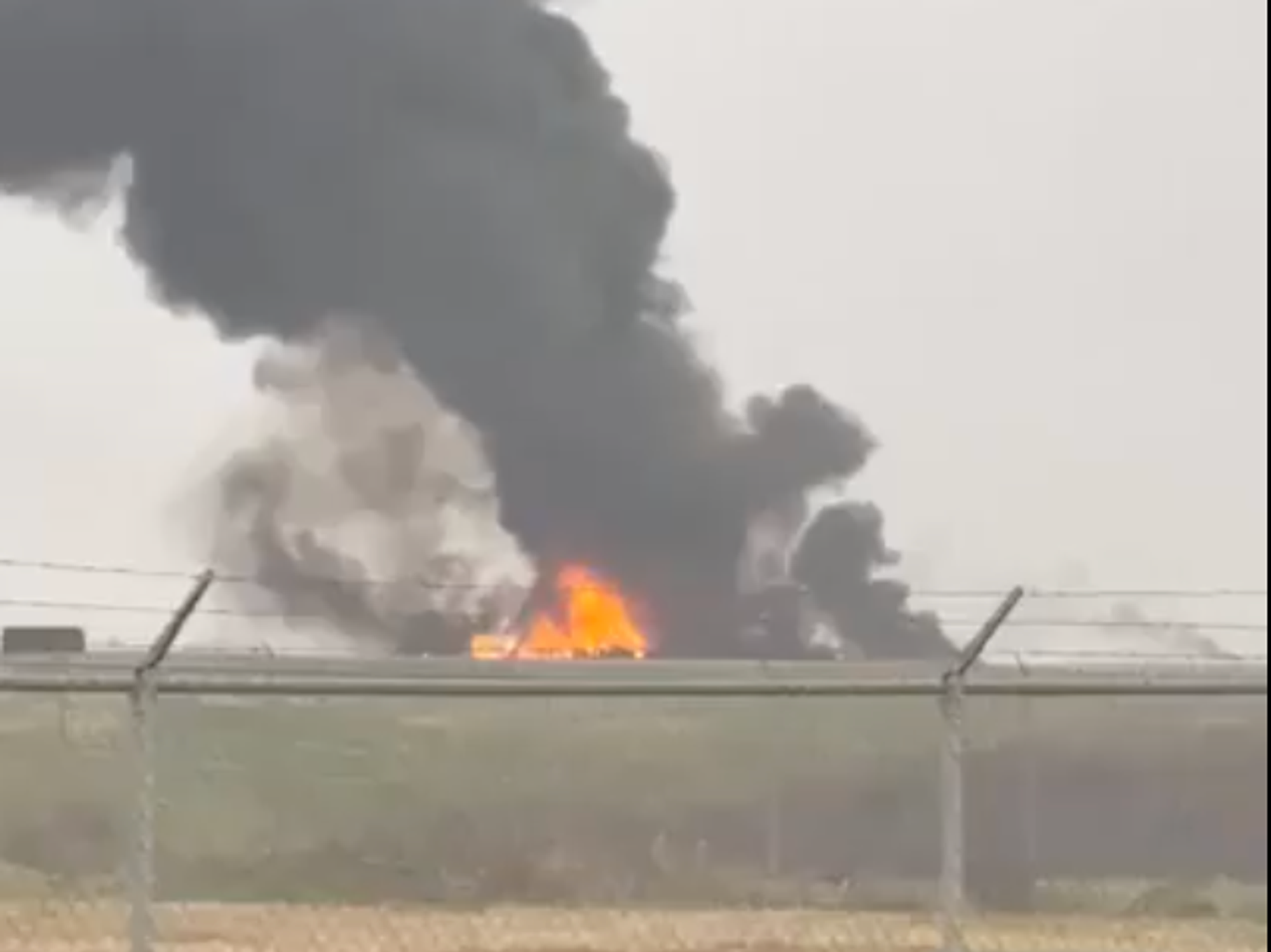Assad's Exit - Out with the Butcher - in with dangerous chaos - Frederick Chedham
A brutal dictator is gone, but Syria’s future may be shaped by forces even more dangerous., writes Chedham, Reform UK's Defence Spokesperson.
Don't Miss
Most Read
Latest
The fall of Bashar al-Assad, Syria’s butcher-in-chief, might seem like a moment to cheer. Here was a man who gassed his own citizens, turned cities into graveyards, and bombed hospitals with the same casual detachment most reserve for pouring tea.
Propped up by the cynical machinations of Russia and Iran, his regime prolonged Syria’s agony for over a decade. Yet, while we might raise a glass to his demise, one question remains: what comes next?
Let’s not delude ourselves—Assad may have been a despot, but he was at least a predictable one. A thug with a taste for chemical weapons, yes, but also someone who kept Syria’s jihadi factions on a tight leash. Without him, the country risks becoming an anarchic playground for every Islamist lunatic with a grudge and a Kalashnikov.
Take Hayat Tahrir al-Sham (HTS), for instance. This rebranded al-Qaeda affiliate is now muscling in on Assad’s leftovers. Its leader, Abu Mohammad al-Jolani, has ditched the fatigues for a sharp suit in a laughable attempt to appear respectable. But let’s not kid ourselves—this isn’t some Middle Eastern Macron.
Jolani’s CV reads like a jihadi greatest hits album: mass executions, enforced Sharia, and an ambition to establish a caliphate stretching from Damascus to Jerusalem. Read it before he does a Rachel Reeves makeover. He’s about as credible a reformer as a fox is a vegan.
And HTS is just the start. The remnants of ISIS are skulking in the shadows, waiting for their next opportunity. Then there’s the Turkistan Islamic Party (TIP) and other al-Qaeda offshoots, all vying for a piece of Syria’s carcass.
HTS leaders openly talk about “liberating Gaza” and “conquering Jerusalem.” It’s jihadist theatre of the absurd, with implications for the entire region. But while Syria risks becoming a caliphate theme park, what about the Syrians themselves? In European cities, expats have cheered Assad’s downfall, but how many will pack their bags and head back?
The hard truth is, Syria under HTS or its rivals won’t be a haven of democracy. It’s more likely to resemble a Taliban-style dystopia, and the idea of returning to that isn’t appealing. Instead, expect more refugees heading west, further burdening Europe’s overstretched resources. Then there’s the regional fallout. Assad’s absence isn’t just a jackpot for extremists; it’s a golden ticket for Turkey, Iran, and Israel to play their own games.
Turkey will exploit the chaos to hammer Kurdish groups in northern Syria. Iran will double down on its land corridor to Hezbollah. Meanwhile, Israel, already on permanent high alert, faces the prospect of a jihadist statelet on its doorstep. For Western leaders, the choices are grim.
Do we engage with HTS in the desperate hope of stabilising Syria, knowing full well we’re dealing with terrorists in borrowed suits? Or do we shun them, risking the creation of yet another extremist vacuum?
Either way, the outcome is bleak. Assad’s fall is undoubtedly a blow to Russia and Iran, who invested heavily to keep his regime afloat.
On the surface, it might look like a win for the West. But it’s a pyrrhic victory. Moscow and Tehran, humiliated by Assad’s collapse, will only double down, funnelling money and weapons into their proxies to claw back influence. The result?
An even bloodier conflict that drags on for years, destabilising the region and beyond.
Let’s be clear: Assad was never going to last forever. His reign of terror was unsustainable. But removing a tyrant without a plan for what comes next is a recipe for disaster. Saddam Hussein’s ousting gave us ISIS. Gaddafi’s toppling plunged Libya into chaos.
Now Syria risks joining the list of nations that traded one form of hell for another.
Our enemy’s enemy is rarely our friend. HTS and the factions vying for control in Syria aren’t champions of freedom.
They’re opportunists, exploiting chaos for their own gain. While it’s tempting to celebrate Assad’s downfall, we must remember the vacuum left behind will be filled—but not necessarily with anything better.
As the world watches Syrian expats cheer Assad’s demise, let’s temper the optimism with scepticism.
The fall of a dictator is not the same as the rise of stability.
Assad may be gone, but the dangers he held at bay are still very much alive. And in the cold light of day, might we find ourselves longing for the devil we knew.










